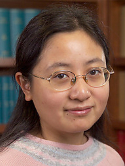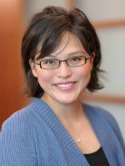Basket study of oral progesterone antagonist onapristone extended-release in combination with anastrozole in progesterone receptor-positive recurrent adult-type granulosa cell tumor of the ovary Journal Article
| Authors: | Finch, L.; Andres, S.; Iasonos, A.; Zhou, Q.; Girshman, J.; Chhetri-Long, R.; Green, H.; Selenica, P.; Jang, D.; O'Cearbhaill, R. E.; Kyi, C.; Cohen, S.; Friedman, C. F.; Makker, V.; Chi, D. S.; Sonoda, Y.; Chiang, S.; Aghajanian, C.; Weigelt, B.; Grisham, R. N. |
| Article Title: | Basket study of oral progesterone antagonist onapristone extended-release in combination with anastrozole in progesterone receptor-positive recurrent adult-type granulosa cell tumor of the ovary |
| Abstract: | Objective: We sought to determine the safety and efficacy of the oral progesterone antagonist onapristone in combination with anastrozole in patients with recurrent progesterone receptor-positive adult-type granulosa cell tumor of the ovary. Methods: This was a single-institution phase II study of patients with progesterone receptor-positive adult-type granulosa cell tumor who received at least 1 prior line of chemotherapy. Patients were enrolled from November 2021 to August 2022 and tissue was evaluated for progesterone receptor status via immunohistochemistry. Eligible patients had progesterone receptor expression ≥1% on tissue collected within 3 years of enrollment. Patients received 50 mg of onapristone extended-release twice daily and 1 mg of anastrozole by mouth daily until progression of disease or discontinuation of treatment. Adverse events were graded by Common Terminology Criteria for Adverse Events version 5.0. The primary end point was the overall response rate by Response Evaluation Criteria in Solid Tumors version 1.1. Secondary end points were response duration, clinical benefit rate, progression-free survival, and safety. Results: Fourteen patients with adult-type granulosa cell tumor enrolled and completed stage 1 accrual. There were no objective responses seen during the study period. The study was closed when further development of onapristone extended-release was discontinued. All 14 patients were evaluable, with median progression-free survival of 3.6 months (range; 1.7-7.1), a 6-month progression-free survival rate of 28.6% (range; 8.8%-52.4%), a 12-month progression-free survival rate of 10.7% (range; 0.8%-35.4%), and a clinical benefit rate of 42.9% (range; 17.7%-71.7%). Conclusion: The study did not meet its primary end point. Although the combination of onapristone extended-release and anastrozole was well-tolerated, there were no objective responses in patients with progesterone receptor-positive adult-type granulosa cell tumor. © 2024 European Society of Gynaecological Oncology and the International Gynecologic Cancer Society |
| Keywords: | immunohistochemistry; adult; cancer chemotherapy; clinical article; human tissue; protein expression; aged; middle aged; major clinical study; clinical trial; fatigue; cancer recurrence; drug dose reduction; drug efficacy; drug safety; drug withdrawal; follow up; antineoplastic agent; ovarian cancer; ovarian neoplasms; metabolism; progression free survival; phase 2 clinical trial; neoplasm recurrence, local; antineoplastic combined chemotherapy protocols; pathology; cancer hormone therapy; karnofsky performance status; tumor recurrence; ovary tumor; granulosa cell tumor; recurrent disease; receptors, progesterone; progesterone receptor; drug therapy; anastrozole; administration, oral; oral drug administration; progression-free survival; delayed-action preparations; hypertransaminasemia; overall response rate; sustained drug release; response evaluation criteria in solid tumors; Common Terminology Criteria for Adverse Events; humans; human; female; article; delayed release formulation; duodenum bleeding; onapristone; gonanes; granulosa cell tumor of the ovary; gonane derivative |
| Journal Title: | International Journal of Gynecological Cancer |
| Volume: | 35 |
| Issue: | 1 |
| ISSN: | 1048-891X |
| Publisher: | Lippincott Williams & Wilkins |
| Date Published: | 2025-01-01 |
| Start Page: | 100005 |
| Language: | English |
| DOI: | 10.1016/j.ijgc.2024.100005 |
| PUBMED: | 39878266 |
| PROVIDER: | scopus |
| DOI/URL: | |
| Notes: | The MSK Cancer Center Support Grant (P30 CA008748) is acknowledge in the PDF -- Corresponding authors is MSK author: Rachel N. Grisham -- Source: Scopus |
Altmetric
Citation Impact
BMJ Impact Analytics
MSK Authors
Related MSK Work




















